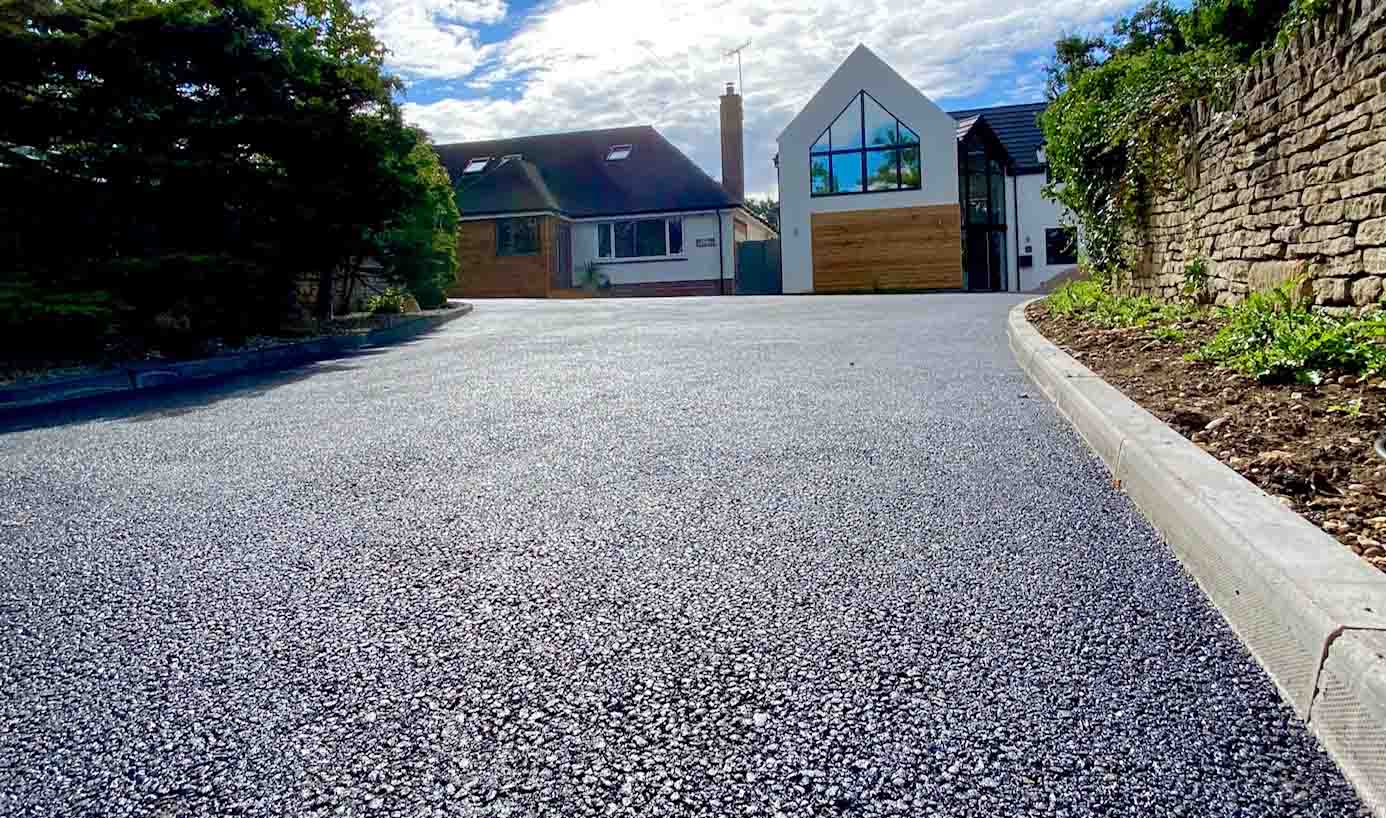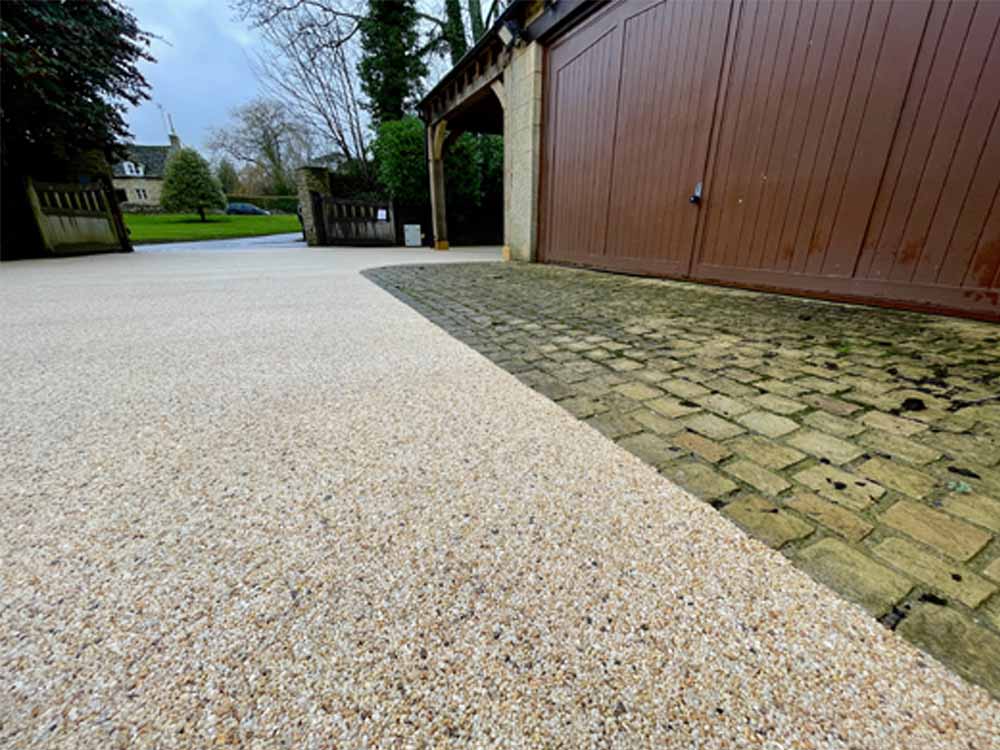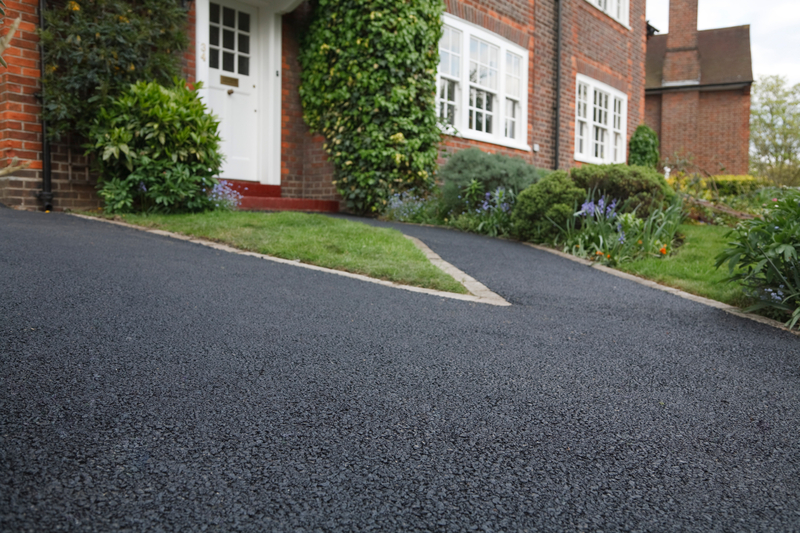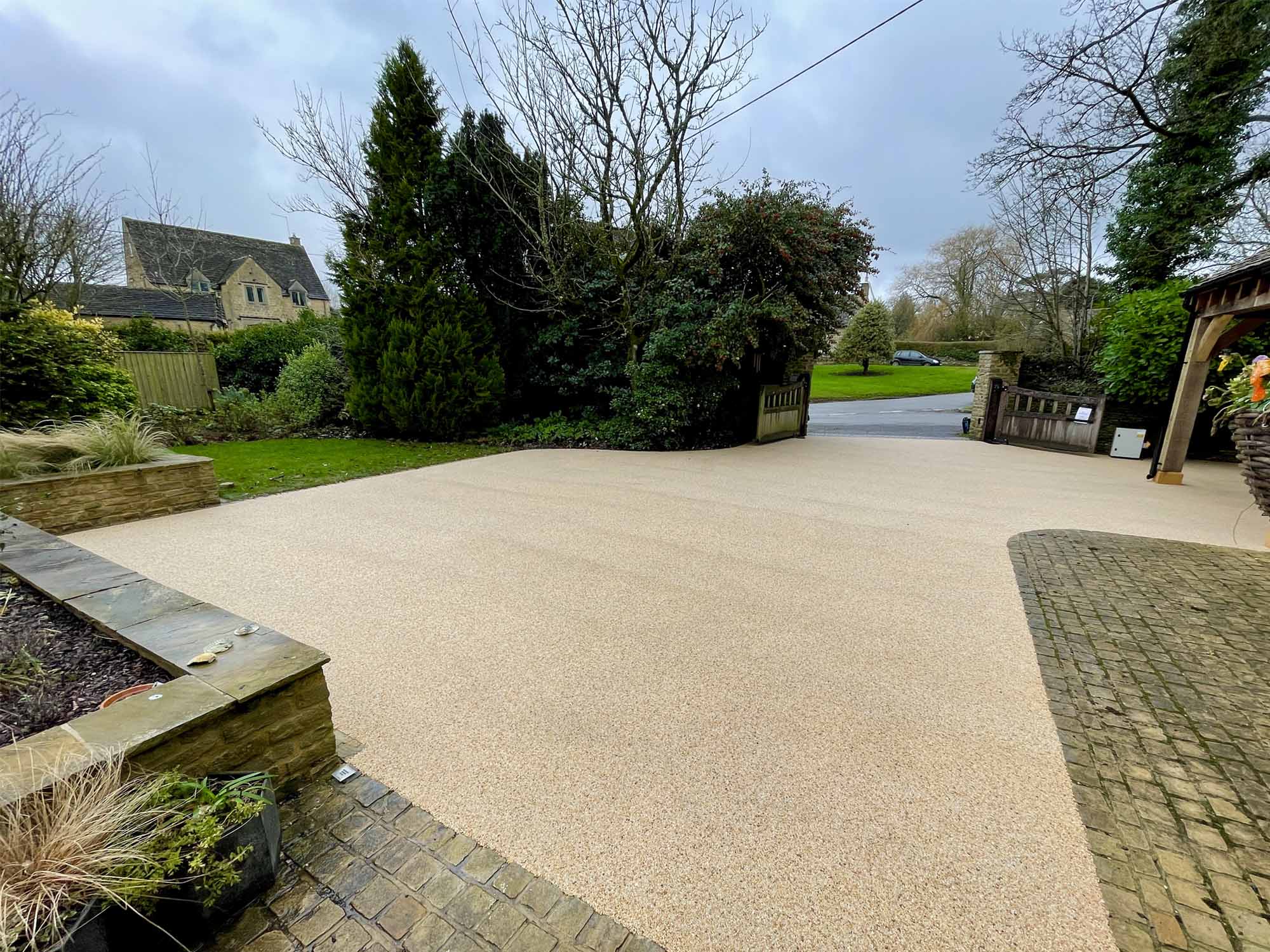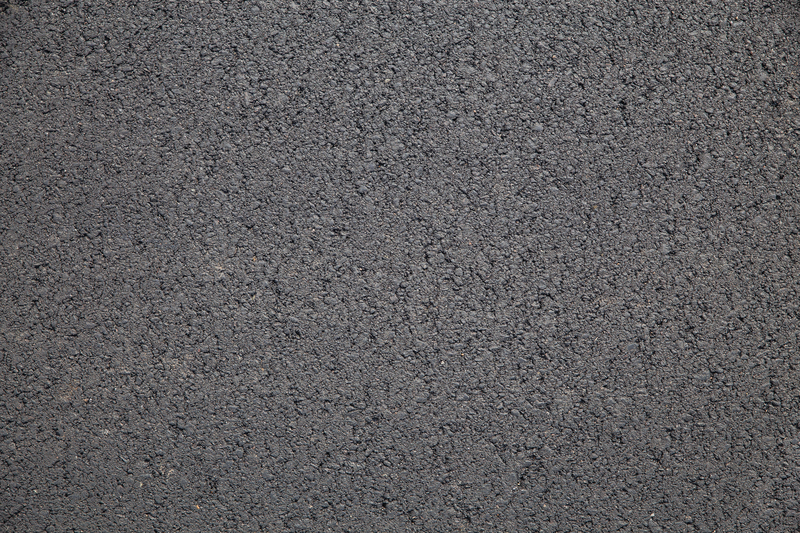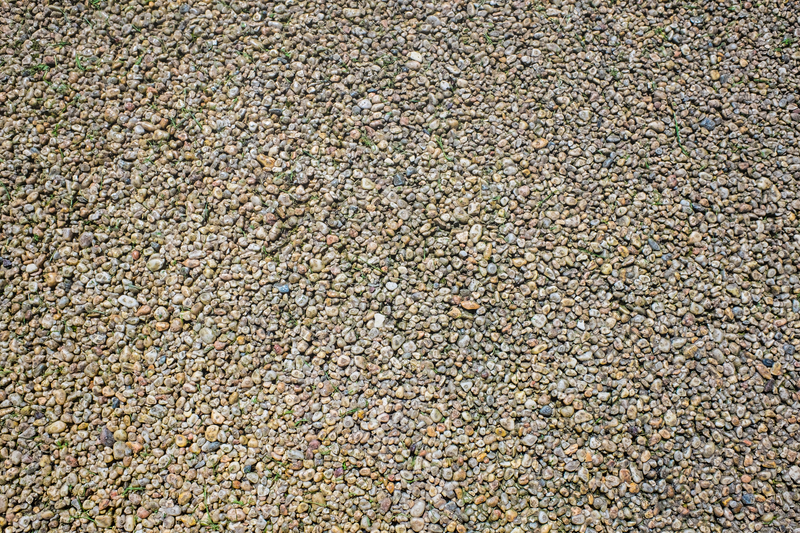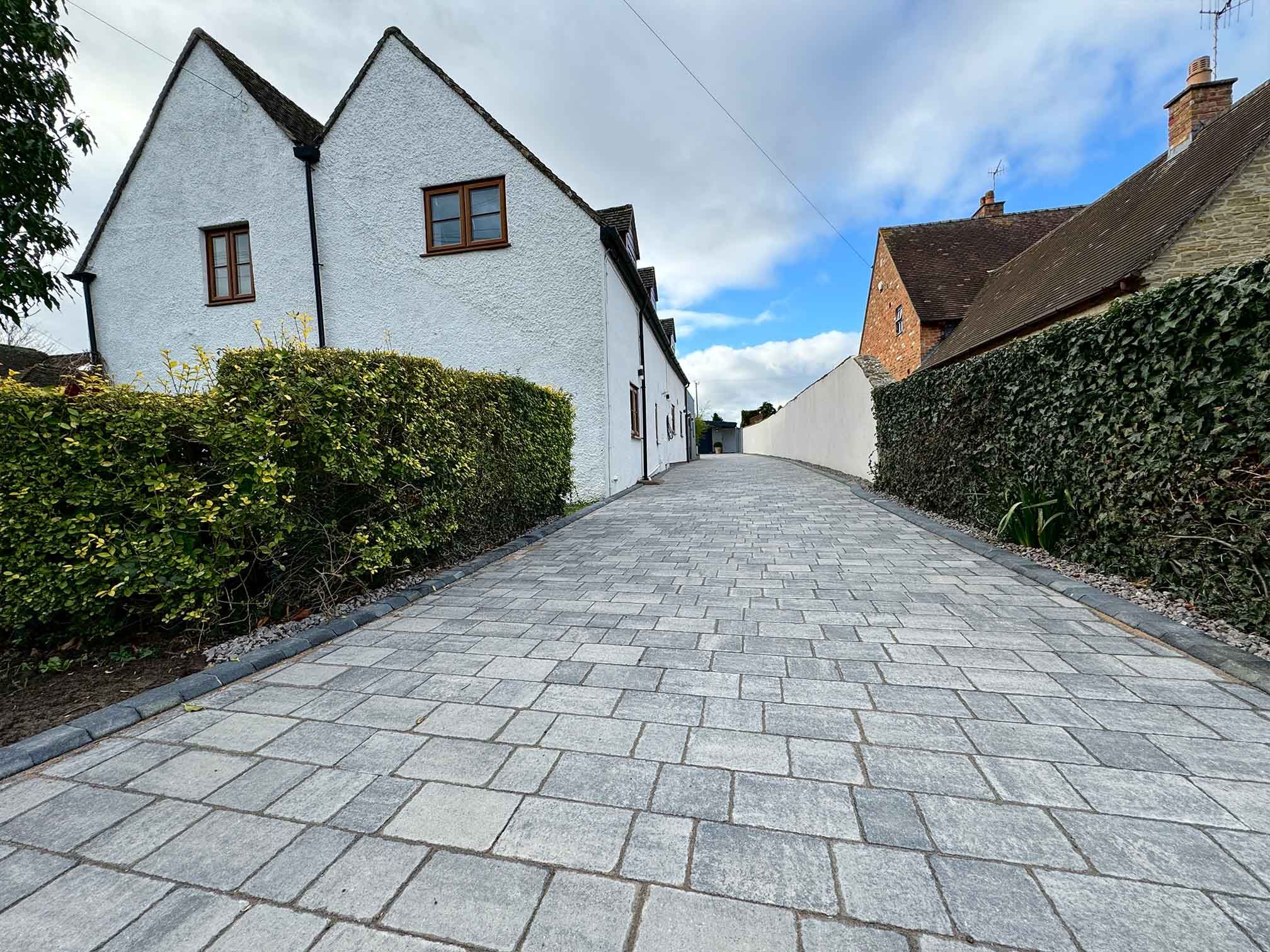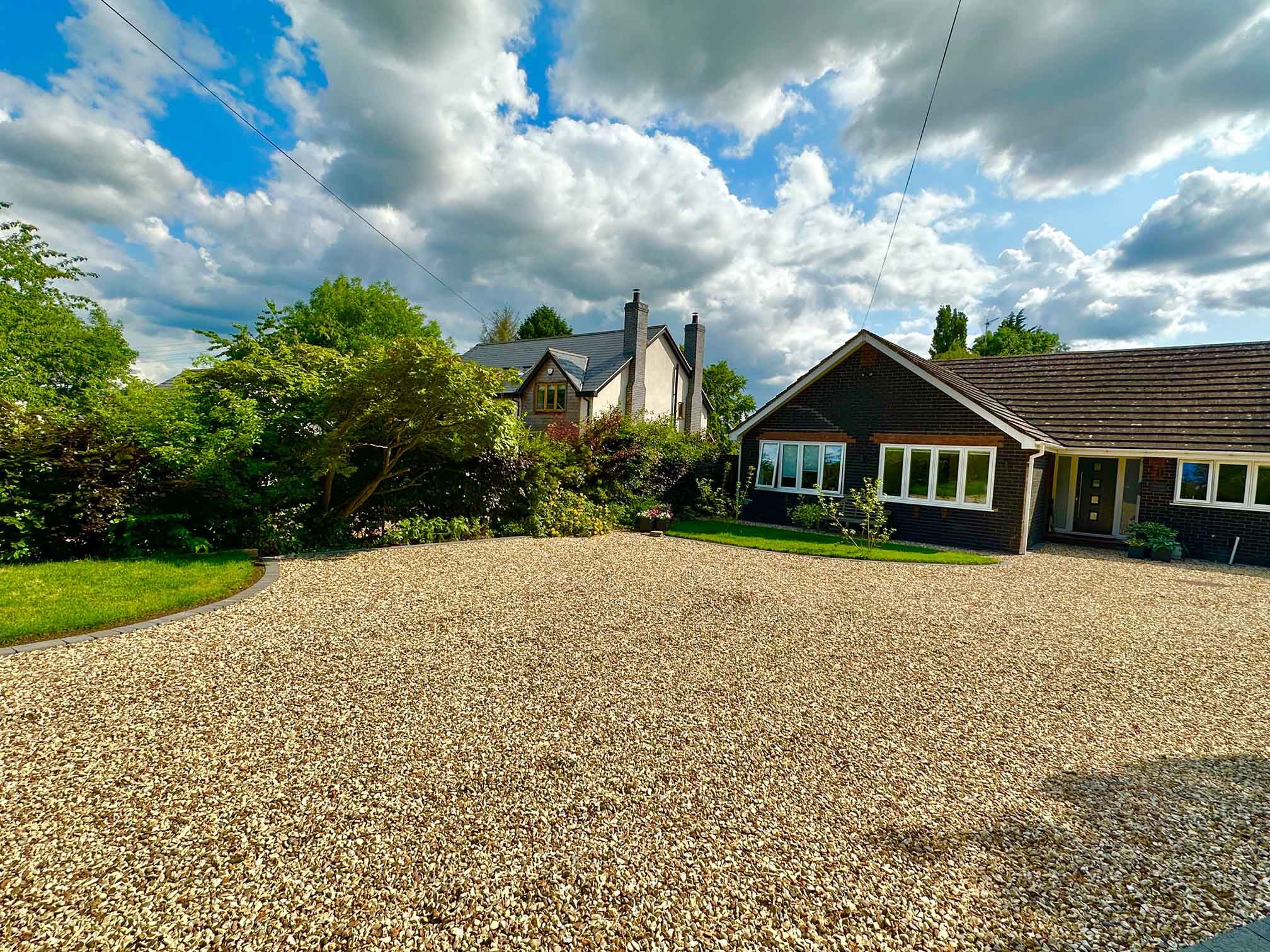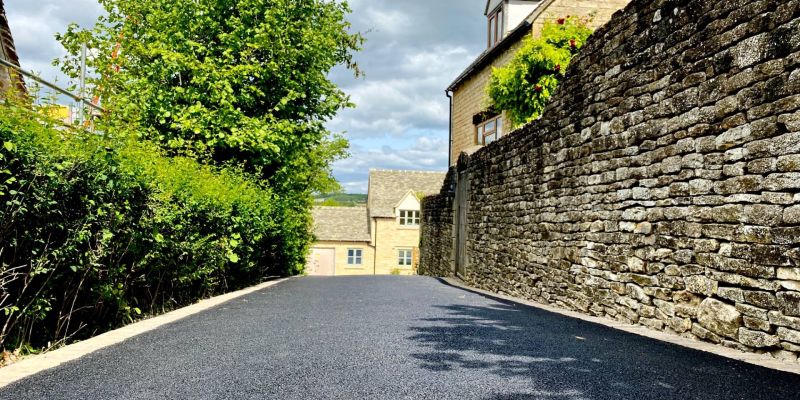
The Differences Between a Resin And Tarmac Driveway
Blog
Choosing the suitable material for your driveway is a significant decision that can impact your property's aesthetic appeal, functionality, and longevity. With all the options available today, you might find yourself stuck on which material is best for you.
It's important to compare your choices in order to truly choose the best driveway for you. In this article, we will examine key factors and compare resin and tarmac driveways to see if resin driveways are really as good as they seem or if you're better off with tarmac.
What are resin and tarmac driveways?
While this might seem like an obvious question, it's essential to know precisely each driveway material before you can truly compare them. You might not know what resin is if you're not a specialist. While tarmac seems obvious, do you know what makes up the material? Let's look at these two in more depth so you can see for yourself.
What is a resin driveway?
A resin driveway is a surface made from a mix of aggregate stones and a clear resin, which binds the materials together to create a solid and durable finish. Creating a resin driveway involves laying a sub-base, which provides a stable foundation, followed by applying the resin-bound mixture. This mixture is then spread and smoothed to form a uniform and seamless surface.
What is a tarmac driveway?
A tarmac driveway is a surface made from a mixture of crushed stone and tar, creating a smooth and durable finish when compacted. Creating a tarmac driveway involves laying a sub-base for stability, then spreading and compacting the tarmac mixture to form a solid surface.
What are the main differences?
To truly know if one driveway is better than the other, you need to know and understand the differences between them. Let's examine the main features of both and how they differ.
Material Composition
Resin bound driveway
-
Aggregate Stones: Resin driveways are composed of a blend of aggregate stones, including gravel, quartz, or recycled glass. These stones are chosen for their durability and aesthetic appeal.
-
Clear Resin Binder: A clear resin binds The aggregate stones together, which acts as a strong adhesive. This resin is typically UV-stable, preventing discolouration from sunlight.
-
Smooth, Seamless Surface: The combination of aggregate stones and resin creates a smooth, seamless surface that is both visually appealing and functional.
-
Customisation: The mixture can be customised with various colours and finishes, allowing a wide range of design options to match different styles and preferences.
Tarmac Driveways
-
Crushed Stone: Tarmac driveways are made from a mix of crushed stone, which provides the bulk and structure of the surface.
-
Tar (Bitumen): The crushed stone is bound together by tar, also known as bitumen. This black, sticky substance acts as a binder, holding the stones in place and creating a solid surface.
-
Hard, Black Surface: The combination of crushed stone and tar results in a complex, black surface commonly seen on roads and pavements.
-
Heat Sensitivity: Tarmac can soften in high temperatures, which may lead to indentations or ruts from parked vehicles. It can also become brittle in cold weather, leading to cracks.
Installation Process
Resin bound driveway
Installing a resin-bound driveway involves laying a stable sub-base followed by spreading the resin-bound mixture, which is then smoothed out. This process can be more time-consuming due to the need for precision.
-
Preparation and Installation: The entire process, from site preparation to final laying, typically takes a few days to a week, depending on the size of the driveway and weather conditions.
-
Curing Time: The resin must cure fully for an additional 24 to 48 hours before the driveway can be used.
-
Weather Conditions: Installation should be avoided in extreme weather conditions, as very high or low temperatures can affect curing.
-
Base Quality: A solid and stable base is essential for the longevity and performance of a resin driveway.
Tarmac Driveways
Tarmac installation is quicker compared to resin. It involves laying a sub-base, followed by spreading and compacting the tarmac mixture. This process allows for faster project completion.
-
Preparation and Installation: The tarmac driveway installation process for tarmac driveways is generally quicker and often completed within one to three days, depending on the size and complexity of the project.
-
Setting Time: Tarmac sets faster than resin, usually within a few hours to a day, allowing for quicker driveway use.
-
Temperature Sensitivity: You have to lay tarmac while still hot, requiring careful timing and coordination.
Cost-effective
Resin-bound driveway costs
Resin driveways typically have a higher initial cost due to the price of materials and the detailed installation process. The cost can vary depending on the type of aggregate used and the complexity of the design.
-
Low Maintenance Costs: Resin driveways' maintenance costs are relatively low over time. They do not require frequent sealing or resurfacing, which can save money in the long run.
-
Durability: The long-lasting nature of resin driveways means fewer repairs and replacements, further reducing long-term expenses.
Tarmac driveway costs
Tarmac driveways are generally more affordable upfront, making them popular for larger areas or budget-conscious projects. A tarmac driveway cost is influenced by the thickness of the tarmac layer and the area to be covered. The installation process is quicker and less labour-intensive, so saving on labour costs contribute to the lower initial costs.
-
Regular Maintenance: Tarmac driveways require regular maintenance, including sealing every few years to prevent cracks and water damage. These ongoing maintenance tasks can add to the overall cost over time.
-
Potential Repairs: Tarmac driveways are susceptible to wear and tear, such as cracks and potholes, which means they may need periodic repairs or resurfacing, which can be costly in the long run.
Durability
Resin driveways are relatively low maintenance when it comes to cleaning. They require occasional sweeping to remove leaves, dirt, and other debris. The resin-bound surface is highly resistant to cracking, even under extreme temperatures or heavy loads. This means fewer repairs and a longer lifespan compared to other materials - making the final cost more effective.
Resin Driveways
Resistance to Weather Conditions:
-
UV Stability: Resin driveways are typically UV-stable, meaning they do not fade or discolour when exposed to sunlight. This makes them ideal for areas with high sun exposure.
-
Temperature Tolerance: Resin surfaces can handle a wide range of temperatures without becoming brittle in the cold or soft in the heat.
Wear and Tear:
-
Surface Integrity: Resin driveways resist cracking and chipping, even under regular use. The resin's flexible nature allows it to accommodate slight ground movements without damage.
-
Abrasion Resistance: The rigid surface can withstand foot traffic, bicycles, and light vehicles without showing significant signs of wear.
Lifespan:
-
Long-Lasting: Resin driveways can last over 20 years with proper installation and minimal maintenance. Their durability means fewer repairs and replacements over the years.
Tarmac Driveways
Resistance to Weather Conditions:
-
Heat Sensitivity: Tarmac can soften in high temperatures, potentially leading to indentations or ruts from parked vehicles. In cold weather, it can become brittle and more susceptible to cracking.
-
Water Damage: Without proper sealing, tarmac can suffer from water infiltration, leading to cracks and potholes over time.
Wear and Tear:
-
Heavy Vehicle Impact: The tarmac is durable and can handle heavy vehicles, but over time, the surface can develop cracks and potholes, primarily if not regularly maintained.
-
Surface Damage: The tarmac is prone to surface damage from oil spills and chemicals, which can deteriorate the binder and aggregate structure.
Lifespan:
-
Moderate Lifespan: Tarmac driveways typically last 10 to 15 years with regular maintenance. However, the need for additional costs (for periodic resealing and potential resurfacing) can impact the overall lifespan.
Maintenance
Resin Driveways
Despite their durability, resin driveways can be susceptible to the growth of moss and algae, particularly in shaded or damp areas. Regular cleaning and anti-fungal treatment can mitigate this issue, ensuring the driveway remains slip-free and visually appealing.
In the long run, resin driveways are cost-effective in terms of maintenance. They do not require frequent sealing or resurfacing and retain their colour and finish for many years. However, if any damage occurs, it is essential to address it promptly to prevent further deterioration.
-
Regular Cleaning: Resin driveways are relatively low-maintenance when it comes to cleaning. Regular sweeping to remove leaves, dirt, and debris is usually sufficient.
-
Pressure Washing: For more stubborn dirt or moss build-up, an occasional pressure wash can help keep the surface clean and looking new.
-
Stain Removal: Though resin driveways are resistant to stains, any oil or chemical spills should be cleaned promptly with a mild detergent to prevent potential discolouration.
-
No Frequent Sealing Required: Unlike tarmac, resin driveways do not require regular sealing. The transparent resin binder used in the installation process provides long-lasting protection without additional sealing.
Tarmac Driveways:
Tarmac driveways are also low maintenance but may need resealing every few years to maintain their appearance and prevent damage. Maintaining a tarmac driveway involves regular sealing to protect the surface from cracks and water infiltration.
Typically required every few years, this sealing process helps extend the driveway's lifespan. Despite initial cost savings, the ongoing maintenance can add up over time. In significant damage, resurfacing might be necessary, which can be time-consuming and costly.
-
Regular Sweeping: Like resin driveways, tarmac surfaces benefit from regular sweeping to keep them free of debris and dirt.
-
Stain Management: Tarmac is more susceptible to oil and chemical stains. It's important to clean spills immediately to prevent damage to the surface.
-
Frequent Sealing Needed: Tarmac driveways require sealing every few years to maintain their integrity. Sealing helps to protect the surface from water infiltration, UV damage, and wear and tear.
-
Resealing Costs: Regular resealing can increase overall maintenance costs, but it is necessary to prolong the life of the tarmac surface.
Permeable Surface
Resin Driveways
Resin Driveways are often designed to be permeable, allowing water to drain through the surface. This reduces the risk of flooding and supports sustainable urban drainage systems. Resin driveways are considered more eco-friendly.
The porous nature of resin driveways helps prevent water accumulation, which can be especially beneficial in areas prone to heavy rainfall or flooding.
Environmental Impact:
-
Reduced Runoff: The ability of resin driveways to allow water to pass through minimises surface runoff. This can help reduce the strain on local drainage systems and mitigate the risk of flooding.
-
Groundwater Recharge: Permeable surfaces like resin driveways contribute to groundwater recharge by allowing rainwater to seep into the ground, promoting a more sustainable water cycle.
-
Less Erosion: The efficient drainage system reduces the likelihood of erosion, maintaining the driveway's integrity and the surrounding landscape.
-
Safety: By preventing water pooling, resin driveways decrease the risk of slipping and improve overall safety.
Tarmac Driveways
Tarmac Driveways are generally non-permeable, which can lead to water runoff and potential drainage issues. The production and laying of tarmac involve processes that may have a higher environmental impact.
-
Non-Permeable Surface: Tarmac driveways are generally non-permeable, meaning water does not drain through the surface. Instead, it relies on proper grading and drainage systems to manage water runoff.
-
Surface Runoff: The lack of permeability can lead to surface runoff, which needs to be directed away from the driveway using channels, drains, and other water management solutions.
Environmental Impact:
-
Increased Runoff: Non-permeable surfaces like tarmac contribute to increased surface runoff, which can put additional pressure on stormwater systems and increase the risk of flooding.
-
Less Groundwater Recharge: Since water cannot penetrate the tarmac surface, it does not contribute to groundwater recharge, potentially affecting the local water table and ecosystem.
-
Durability in Wet Conditions: Despite being non-permeable, tarmac driveways can handle wet conditions well if proper drainage systems are in place. The solid surface can withstand heavy rainfall without significant damage.
What does this mean for planning permission?
Resin driveways often have an advantage in planning permission requirements due to their permeability, which aligns with many local regulations for sustainable water management. Tarmac driveways, being non-permeable, usually require more rigorous planning and drainage solutions to obtain permission.
Both driveways may require planning permission if they exceed specific area sizes, involve structural changes, or are located in areas with particular preservation requirements. Ultimately, it's essential to consult with local planning authorities to understand the requirements and regulations that apply to your property and the choice of driveway material. You can check out whether you need a permit in our article.
So, after all that - is resin better than tarmac?
In short, the answer to this question is no. Types of driveways are choice and preference-dependent, and what may work best for you might not work best for someone else.
Understanding which type of driveway would most benefit you is the only way to really know which option is best for you.
Final Thoughts
If you prioritise aesthetics, permeability, and low maintenance, resin driveways are likely the better choice. They offer long-term durability with minimal upkeep and contribute positively to environmental sustainability. However, tarmac might be more suitable if you need an initial cheaper overall project cost option that can handle heavy traffic and doesn't require regular maintenance.
Ultimately, the best choice depends on your specific requirements, budget, and environmental considerations. If you have any queries or questions oh how we can help install a new tarmac driveway, resin, block paving or even gravel - please fill out the form below, and a member of our team will contact you as soon as possible.
Whether you're wanting to spruce up your existing driveway or starting from scratch, we're here to help you with your driveway project.
